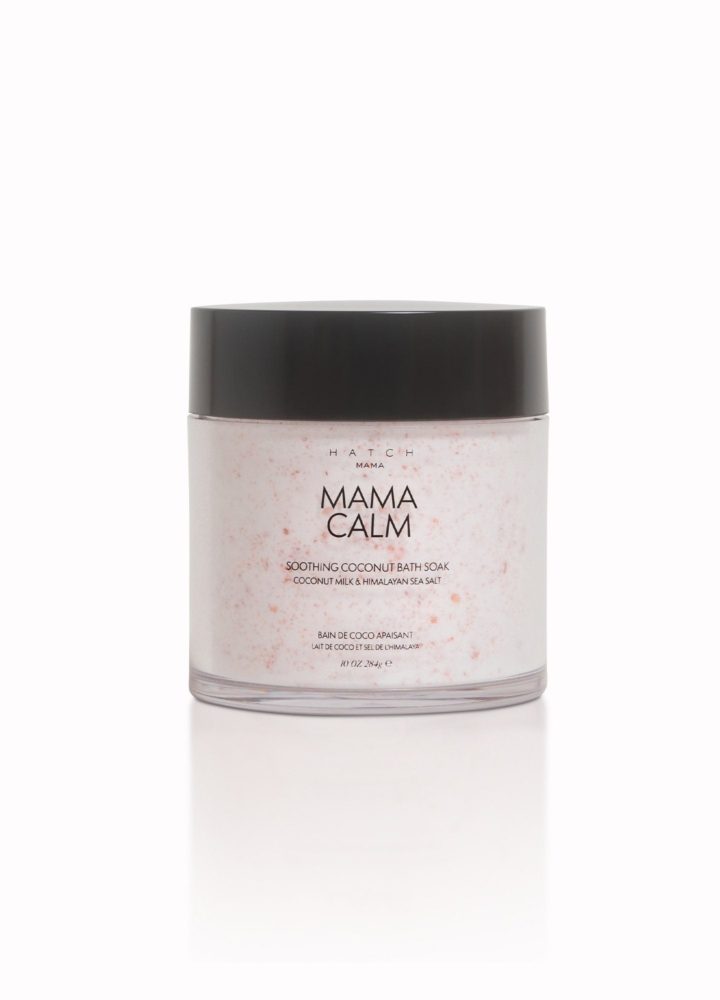Whether it’s having to get up every two hours to go pee, sleeping around your growing tummy, or dealing with restless legs syndrome, being pregnant can wreak havoc on your sleep schedule.
Plus, many traditional sleep aids (such as melatonin) aren’t often suggested for pregnant women. It’s one of the great paradoxes of pregnancy: Sleep has never been so needed, yet has never been so far out of reach.
If this sounds familiar, get excited: There are safe, natural sleep aids out there to help you get some shuteye, including herbs.
Keep reading for everything you need to know about using herbs to treat insomnia and six of our favorites.
Traditional Sleep Aids and Pregnancy
Most of the time (AKA, when you aren’t growing a tiny human), a restless night can be fixed by popping a melatonin or a Zzzquil.
Unfortunately, when pregnant, many traditional sleep aids might not be the best choice due to the risk of side effects, including melatonin.
Despite the fact that melatonin is naturally produced in our bodies, its safety and efficacy during pregnancy are not fully understood. Melatonin is present in the amniotic fluid and is produced by the placenta and ovaries while pregnant.
It’s unclear how the additional melatonin in supplements might impact you and baby. Given this, most doctors and healthcare providers advise against consuming melatonin while pregnant.
Other meds that cause sleepiness, such as Benadryl, are generally considered safe to take during pregnancy, although you should always talk to your doctor before taking any medication while pregnant. It also generally isn’t advisable to use over-the-counter medication such as Benadryl to treat chronic insomnia or other sleep conditions, including insomnia.
So what’s a mama-to-be to do?
Keep reading for all the 411 about using herbs to treat insomnia while pregnant, as well as some that you may find helpful come the fourth trimester:
Herbal Supplements for Insomnia
Natural herbs have long been used across the world to treat insomnia and other sleep problems. However, not all of these sleep-inducing herbal medicines have been proven safe to take while pregnant.
We’ve gathered up the six most common herbs used to treat insomnia and other sleep disturbances and walked you through everything you need to know below.
Valerian Root
Valerian root has been used as an alternative medicine to treat insomnia and improve sleep for almost three hundred years. It can be taken as a dietary supplement, tea, or extract.
It is frequently used to promote restful sleep and is one of the most popular and powerful herbal remedies for sleep problems.
However, not everyone agrees on the safety of using valerian during pregnancy or breastfeeding, and more clinical trials are needed for a definitive answer. Like all supplements, valerian root is not regulated by the Food and Drug Administration (FDA), and complete studies on its effects during pregnancy have not been conducted.
If you’re considering using valerian to address your insomnia and you’re also thinking about becoming pregnant, talk to your doctor or healthcare provider. They’ll be able to provide advice and help you decide if valerian is right for you in the short-term and long term.
Chamomile
Chamomile is another extremely common herb used for its sedative effects, usually in the form of tea. Chamomile is packed with antioxidants and is often used to help calm your nervous system and promote sleep, as well as prevent colds. It also has anti-inflammatory benefits that may be helpful if you suffer from joint pain.
You can easily find chamomile tea on the shelves of your local supermarket, and it’s a great option for all-natural treatment of insomnia (even while preggo!),
Despite rumors that chamomile can induce early labor, there have been no scientific studies on chamomile to support this, and sipping a chamomile tea every once in a while may help you get some much-needed shuteye. As with any sort of supplement during pregnancy, be sure to talk to your doctor before taking chamomile.
Lavender Oil
Who doesn’t enjoy the calming scent of lavender? Often used in aromatherapy products like candles, bath salts, and perfume, lavender has been found to decrease anxiety and stress and promote relaxation.
All of these positive side effects can help you avoid sleeplessness and sleep more soundly despite the pregnancy aches and pains you may be experiencing. We also love it post-pregnancy — there’s nothing more relaxing than putting the kids (or fur-kids) to bed, stepping into your favorite jammies, and lighting a soothing lavender candle to unwind before bed.
Lavender is often used in essential oil form, although many teas are lavender-scented as well. Although lavender is considered generally safe during pregnancy, experts sometimes recommend avoiding essential oils during the first trimester.
If you’re considering using lavender essential oil in your search for good sleep, talk to your doctor to get their OK before proceeding. You might also try a calming lavender tea. Or, you can sleep with a lavender sachet under your pillow to benefit from its calming effects without relying on the essential oil. Recall that all essential oils must be diluted with a carrier oil before use.
Patchouli and Ylang-ylang
Patchouli and ylang-ylang are a complementary pair often used in essential oil forms to aid those seeking better sleep and relief from stress and anxiety. You might put these essential oils into an oil diffuser, or dilute them with a carrier oil and dot them onto your wrists or temples to soak up their relaxing scent.
Although little scientific research has been conducted on the benefits of these essential oils as sleep medicine, anecdotal evidence suggests that they can help ease tension and unwind before bed, promoting drowsiness and deeper sleep. (As with all essential oils, if you are pregnant, talk to your healthcare provider before incorporating these herbs into your bedtime routine).
Passionflower
Passionflower has long been used as an herbal remedy for insomnia, hysteria, anxiety, and even seizures. Researchers believe it can increase the amino acid gamma aminobutyric acid (GABA)’s levels in your brain.
GABA is a neurotransmitter that can help promote muscle relaxation and get your body and mind ready for sleep. It’s often used in conjunction with other relaxing scents, such as lemon balm and valerian, to help promote sleepiness and prepare you for bed. Passionflower is also considered milder than other herbal sleep remedies, including valerian root.
Like nearly all herbs and supplements, scientific studies on the use of passionflower to treat insomnia during pregnancy are scarce. While passionflower is considered a good tool to treat insomnia in non-pregnant people, some healthcare providers recommend against using it during pregnancy due to the lack of research on its impacts on a growing fetus.
What Other Strategies Can I Use to Treat Insomnia?
So you’ve tried all the herbal remedies you can get your hands on, and they haven’t done the trick. Luckily, we have some more suggestions to help you get the good night’s sleep you deserve:
Regular Exercise
One of the best things you can do to wear yourself out and get into a good sleep schedule is to make exercise a regular part of your daily routine. Exercise has been shown to decrease insomnia and other sleep disorders, improve sleep quality, and regulate mood and stress.
This doesn’t mean you have to go out and start doing sprints! Try incorporating some long walks or prenatal yoga into your routine for some gentle but effective exercise. It might just put you to sleep!
Meditation
Meditation is another great strategy to clear the mind and get yourself ready for sleep — no sleeping pills required. If you feel intimidated by meditation or have never done it before, try following along with a YouTube meditation tutorial or checking out meditation playlists on Spotify. There are even several apps designed to help you unwind and relax through meditation!
Even just a few minutes of meditation before bed may help you find better sleep.
Talk to Your Doctor
Finally, a failsafe sleep remedy for any insomnia or sleep disorder you may be experiencing is talking to your doctor and getting their advice. Whether you’re pregnant, planning on becoming pregnant, or postpartum, a lot of factors determine what insomnia treatment strategy is best for you.
Let your healthcare provider know what you’re experiencing, and they’ll be able to provide suggestions and create a game plan to help you get those ZZZs you need.
Being a mom is tough work, and not being able to get to sleep makes it even harder! If you’re struggling with poor sleep, an herbal remedy might be what you need to get that all-important shuteye.
There’s no need to keep suffering — stock up on your herbal teas, throw on your favorite nightgown, and get snoring, babe!
Sources:








